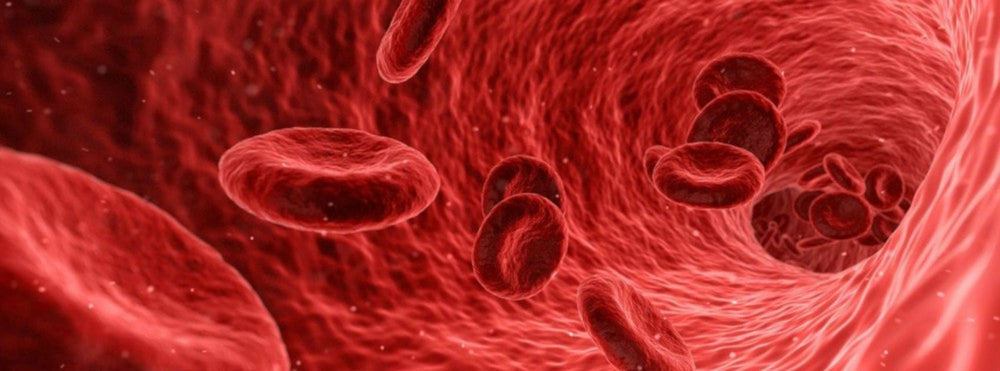Could protecting your heart also protect you from COVID-19?

Blood clots. Stroke. Rashes on toes. COVID-19 has been linked to an increasing number of seemingly strange symptoms. Now, new research reveals a possible cause that would link these disparate symptoms: the virus may damage the endothelium.
Huh?
First a little background...
The endothelium (en-dough-THEEL-yum) is the innermost lining inside blood vessels. It is a very thin delicate layer of cells which covers up the tissues which make up a blood vessel’s wall – much like skin covers the tissues of our hands (for example). The endothelium is a vital barrier — and keeping it healthy is critical to keeping blood flowing smoothly throughout our body.
People with cardiovascular risk factors such as high cholesterol, high blood pressure, diabetes, smoking, obesity, lack of physical activity — and poor eating habits — are more likely to have an unhealthy endothelium. And unhealthy endothelium is at higher risk of breaking down or sloughing.
If the endothelium breaks down or sloughs, the raw tissue underneath is exposed to the blood flowing past it – much like if you sloughed off a bunch of skin off your hand and that underling raw tissue was exposed to the air. The body’s automatic reaction is to try to heal the injury. On your hand, you would form a scab. On the inside of a blood vessel, you would form a clot. That blood clot inside a blood vessel is the body’s equivalent of the scab on your hand. That blood clot is also what can cause a heart attack or stroke.
Getting back to COVID-19…
When the pandemic first hit, doctors were surprised that a virus that seemed to zero in on the lungs disproportionately affected people with pre-existing conditions like high blood pressure, high cholesterol, diabetes, and heart disease.
But a recent report published in the New England Journal of Medicine might just have provided the reason why this is so. Autopsy evaluations of lungs from patients who succumbed to COVID-19 displayed signs of severe endothelial injury in lung blood vessels, with the virus actually present within the endothelial cells themselves. Not surprisingly little blood clots were found throughout those blood vessels – something that is not really seen in cases of other viral infections (like influenza).
And here's the big “aha” moment: If this virus works by causing endothelial damage, those of us with an already weakened endothelium (based on high cholesterol, high blood pressure, diabetes, obesity, smoking, inactivity or poor diet) could be much more susceptible to some of the more serious consequences of a COVID-19 infection.
Once you start to look at COVID-19 as a virus that attacks the endothelium, all of the seemingly disconnected symptoms we’ve been seeing – from lung problems to strokes — start to make total sense. The endothelium lines EVERY blood vessel in our body. So EVERY blood vessel is at risk – especially in those individuals who have pre-existing conditions that contribute to endothelial cell dysfunction.
Now for the good news...
If a weakened endothelium is the problem, we know how to fix this! On the drug end, pharmaceuticals like statins and certain common blood pressure lowering medications (angiotensin-converting–enzyme (ACE) inhibitors and angiotensin-receptor blockers (ARBs)) are known to possess endothelium-stabilizing properties. And research is showing promise that these drugs can help improve survival in people sickened by the virus. And that those with controlled risk factors fare better when infected.
But as a preventive cardiologist, my advice is not to wait until you have COVID-19 to start worrying about your endothelium! Act NOW to make your endothelium as strong as possible so you’re better able to withstand an infection. That means attending to your cholesterol, your blood pressure, your blood sugar, your weight, your diet, your activity levels and your tobacco use. In other words, now is the time to kick your heart disease prevention efforts into their highest gear!
And if there was ever a time to care about your diet this is it! We already know that eating poorly can have an immediate negative impact on endothelial function. Research is also voluminous and consistent that nutrients such as omega 3 fatty acids and antioxidants — abundant in the Mediterranean diet — and in our Step One products — help protect the endothelium. In fact, Step One's foods were specifically designed to deliver clinically meaningful levels of antioxidants and omega-3 fatty acids in each and every serving.
In no way do I mean to imply that Step One can treat or prevent COVID-19! But what I can say is that if your goal is to keep your endothelium in tip top shape, we can help.
About Step One Foods: Step One Foods is a line of food products that are scientifically formulated to help lower cholesterol. Founded by cardiologist Elizabeth Klodas, Step One is clinically proven to help improve cholesterol levels. We offer a variety of breakfast and snack foods that are not only delicious but also nutritionally impactful.

Tested & Proven Results.
- Cardiologist formulated
- Supported by over 500 publications
- Clinically-proven, in a double-blind randomized trial with Mayo Clinic and The University of Manitoba
80% of participants lowered their cholesterol in just 30 days. With just two servings per day, Step One Foods offers a proven-effective way to naturally lower LDL (bad) cholesterol.
Get heart health tips and articles like this, delivered right to your email.
New articles every week.
You may also like...

Why Most New Year’s Resolutions Fail - And How to Right-Size Yours

You don’t need to avoid foods with cholesterol…except for these



